Top Agent Productivity Tools for Call Centers 2025
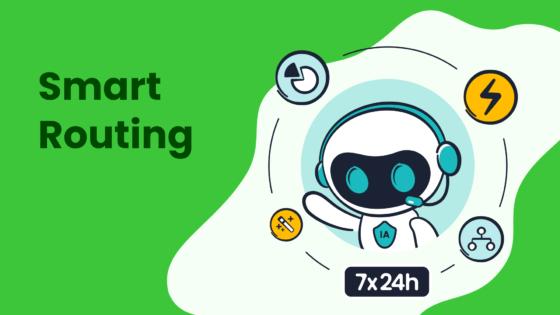
Modern call centers rely on tools to boost agent productivity (AP) and deliver exceptional customer experiences. These tools streamline workflows, reduce manual tasks, and empower agents to focus on resolving customer issues effectively. For instance, companies using gamification have seen a 50% rise in workforce productivity and a 60% improvement in employee engagement. Additionally, 45% of consumers prefer their issues resolved during the first interaction, highlighting the need for efficient systems.

Sobot’s innovative solutions, like its Voice/Call Center, exemplify how technology can transform operations. Features such as intelligent IVR and AI-powered voicebots enable agents to handle inquiries faster, significantly improving satisfaction rates. With tools like these from Sobot, you can meet customer expectations, such as responding within 4 hours, which 46% of customers demand today.
Key Criteria for Selecting Agent Productivity Tools
Ease of Use
Intuitive interfaces for quick onboarding.

When choosing call center software, ease of use should be a top priority. Tools with intuitive interfaces allow agents to get started quickly without feeling overwhelmed. For example, Sobot’s Voice/Call Center offers a unified workspace that simplifies call management and customer interactions. This feature ensures agents can focus on resolving issues rather than navigating complex systems. Metrics like the Customer Effort Score (CES) highlight the importance of simplicity. A higher CES reflects better service quality and ease of support, which directly impacts customer satisfaction.
Minimal training requirements for agents.
Call center tools should minimize the time and resources needed for training. Workforce management tools with user-friendly designs reduce the learning curve, enabling agents to become productive faster. This approach not only saves time but also boosts morale. Studies show that 76% of employees who feel supported by their leaders report higher engagement levels. By investing in tools that are easy to learn, you create a more motivated and efficient team.
Integration Capabilities
Compatibility with CRM, ticketing systems, and other software.
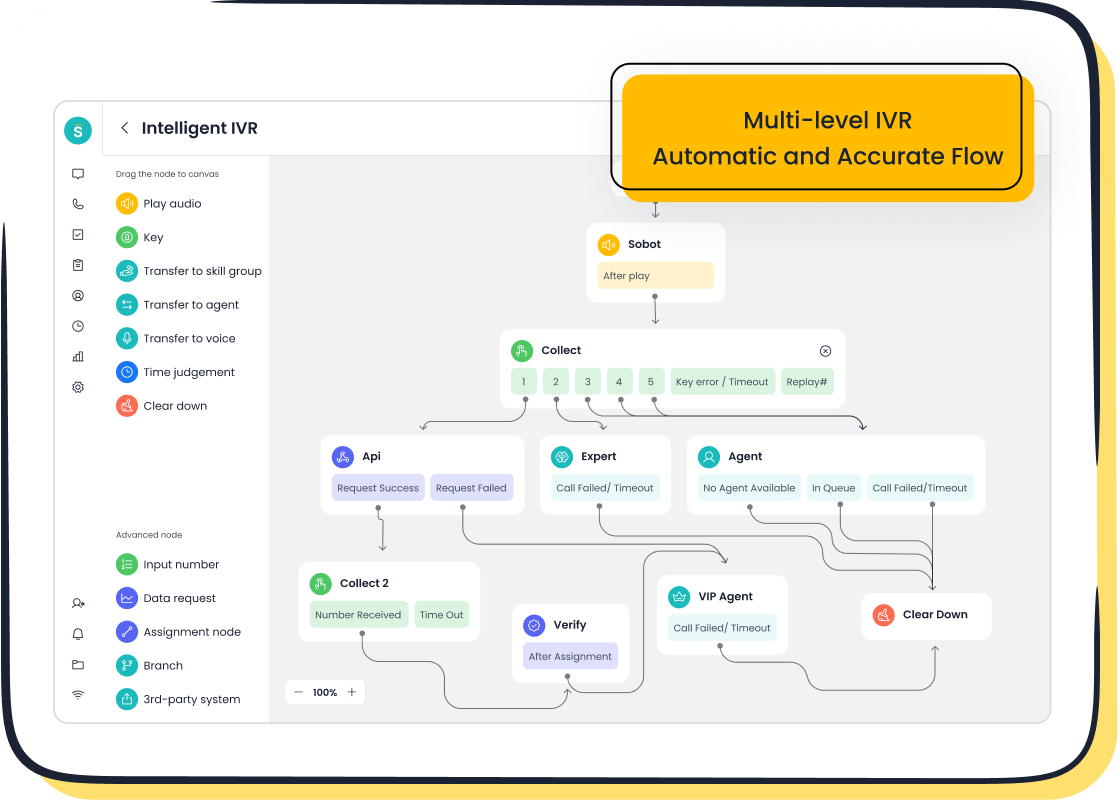
Seamless integration with CRM and other contact center software is essential for operational efficiency. Tools that connect effortlessly with existing systems streamline workflows and reduce the need for manual data entry. Sobot’s Voice/Call Center excels in this area, offering integration with CRM platforms and omnichannel support systems. This compatibility ensures agents have all the information they need in one place, improving both productivity and customer experience.
API support for custom integrations.
Custom integrations allow businesses to tailor their tools to specific needs. APIs enable call center software to adapt to unique workflows, enhancing flexibility. For instance, 85% of call center managers plan to implement conversation intelligence, a feature that relies on robust integration capabilities. This trend underscores the growing importance of adaptable tools in modern call centers.
Pricing and Scalability
Cost-effectiveness for small and large call centers.
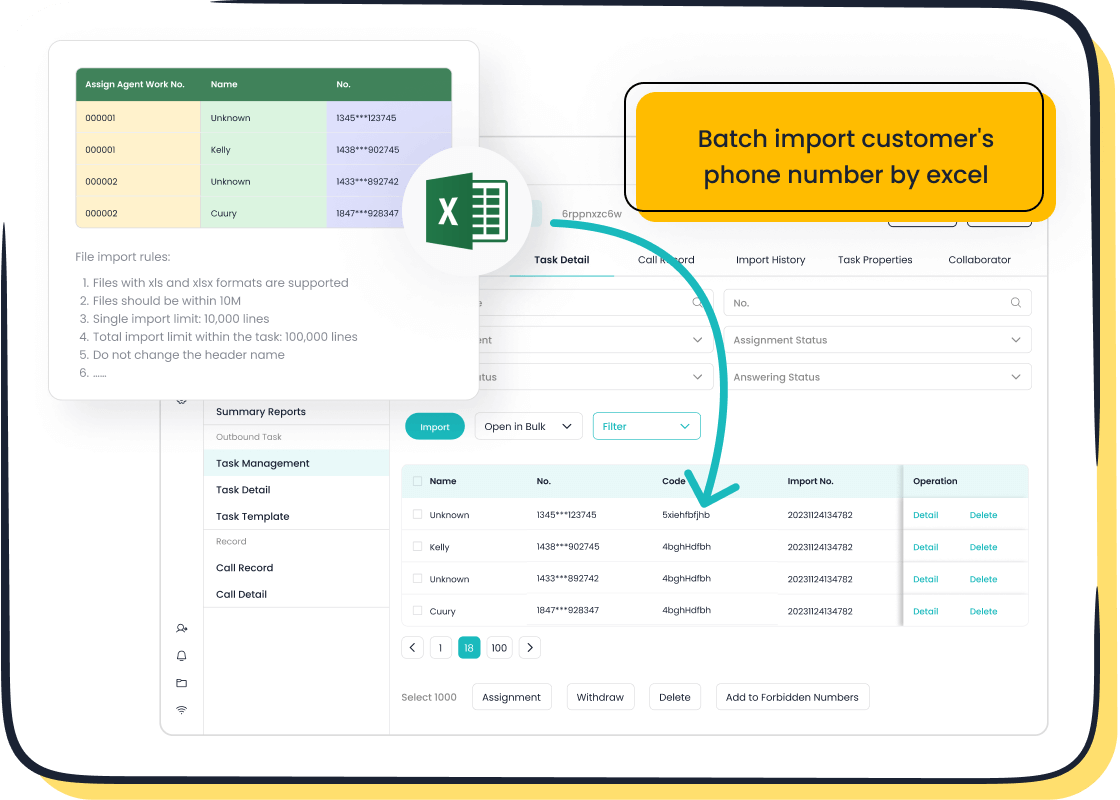
Pricing plays a crucial role in selecting dedicated call center software. Cost-effective solutions benefit both small businesses and large enterprises. Models like Sobot’s cloud-based contact center offer scalable pricing, making them accessible to organizations of all sizes. Outsourcing can also reduce costs by 40% to 70%, providing a budget-friendly option for businesses with fluctuating call volumes.
Flexibility to scale as the business grows.
Scalability ensures that your tools can grow with your business. Features like omnichannel support and AI-powered automation make it easier to handle increasing customer demands. Sobot’s Voice/Call Center, for example, supports global telephony and multilingual capabilities, making it ideal for expanding operations. This flexibility allows you to maintain high service levels, even during periods of rapid growth.
Features and Customization
Automation, analytics, and reporting capabilities.
Automation plays a vital role in modern call centers. It reduces repetitive tasks, allowing agents to focus on solving customer issues. For example, Sobot’s Voice/Call Center uses AI-powered voicebots to handle routine inquiries. This feature ensures faster responses and improves customer satisfaction. Predictive analytics, another essential feature, analyzes past call data to forecast future trends. This helps you prepare for peak call times and allocate resources effectively.
Analytics and reporting tools provide valuable insights into your operations. Interaction analytics reveal customer pain points across channels, helping you refine processes. Call volume and traffic pattern analysis enable better staffing strategies, reducing wait times. These features not only enhance efficiency but also improve service quality. By leveraging these tools, you can make data-driven decisions that benefit both your team and your customers.
Customizable workflows to suit specific needs.
Every call center has unique requirements. Customizable workflows allow you to tailor processes to meet these needs. Sobot’s Voice/Call Center offers flexible IVR systems and rule-based routing. These features let you design call flows that align with your business goals. For instance, you can route high-priority calls to specialized agents, ensuring faster resolutions.
Custom workflows also improve agent productivity. Unified workspaces, like those in Sobot’s platform, consolidate customer data and communication channels. This feature minimizes system switching, saving time and reducing errors. With customizable options, you can adapt your tools as your business evolves. This flexibility ensures your call center remains efficient and responsive, even as customer demands change.
Top Agent Productivity Tools for Call Centers
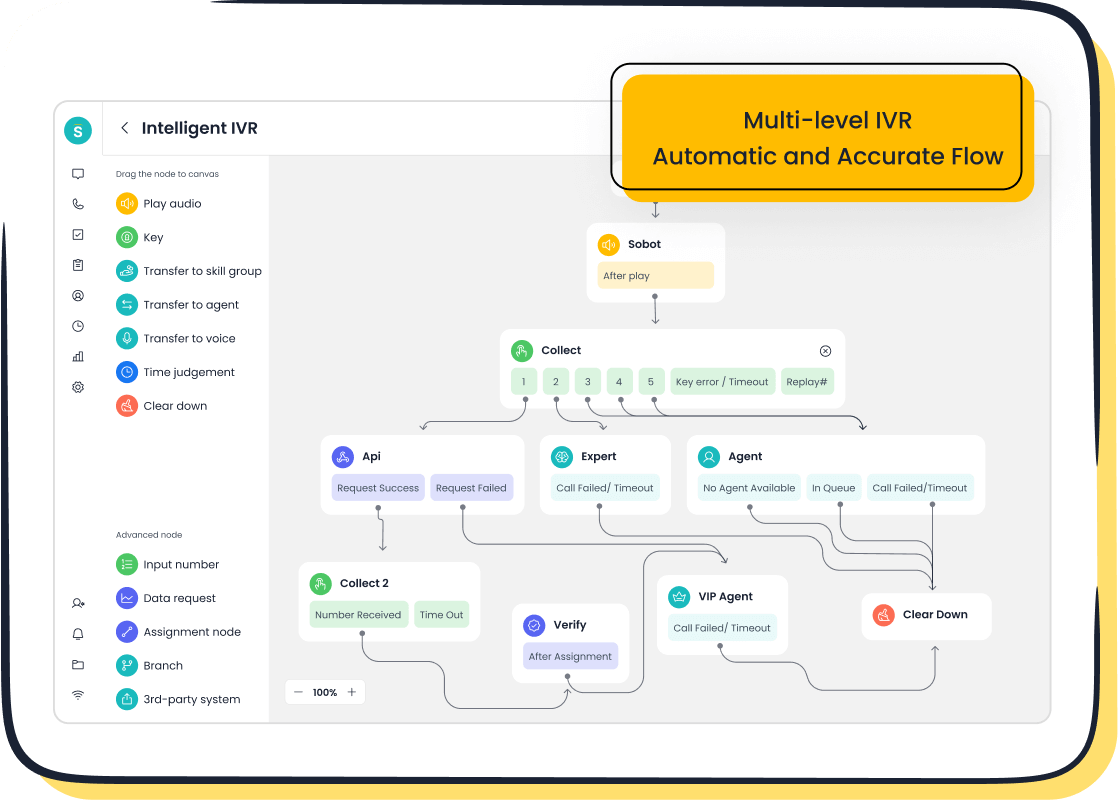
CloudTalk
CloudTalk is a powerful call center software designed to enhance agent productivity and customer satisfaction. It offers features like call transcription, which automatically converts conversations into text for easy logging and analysis. This tool also provides call center analytics, giving you a comprehensive view of agent performance and call statistics. With real-time analytics dashboards, you can monitor call activities and agent availability, ensuring efficient workflow management.
One standout feature is its workforce management solution. This equips managers with tools to support agents in real-time, improving call effectiveness. For example, predictive analytics in CloudTalk can boost efficiency by up to 60%, helping you allocate resources effectively during peak hours. By integrating seamlessly with CRM systems, CloudTalk ensures agents have all the necessary information at their fingertips, reducing wait times and improving customer interactions.
Zendesk
Zendesk is a widely recognized contact center software that simplifies customer service operations. It integrates with CRM platforms to provide a unified view of customer data, enabling agents to deliver personalized support. Its AI-powered tools, such as chatbots and automated workflows, streamline repetitive tasks, allowing agents to focus on complex issues.
Speech analytics in Zendesk can increase customer satisfaction scores by up to 10% while reducing operational costs by 20-30%. These features make it one of the best call center software options for businesses looking to enhance agent productivity and customer satisfaction. Additionally, its omnichannel support ensures seamless communication across various platforms, improving the overall customer experience.
Salesforce Service Cloud
Salesforce Service Cloud stands out as a cloud contact center solution with advanced AI capabilities. Its Customer Experience Intelligence tool helps you analyze feedback and understand customer sentiment across service interactions. This feature identifies key topics and issues that influence satisfaction, enabling you to make data-driven improvements.
With real-time feedback collection and sentiment analysis, Salesforce Service Cloud empowers agents to provide better service. For instance, dynamic surveys embedded across channels help you gather actionable insights, enhancing customer engagement. By leveraging its AI-driven tools, you can maintain strong client relationships and boost agent morale, ensuring long-term success.
Intercom
Intercom is a versatile call center software that combines advanced tools to improve customer support and agent productivity. Its integration of Help Desk, AI Chatbot, and Proactive Support ensures seamless customer interactions. These features reduce manual tasks, allowing agents to focus on resolving complex issues.
- Real-time insights: Intercom provides built-in reporting and analytics. These tools help you make informed decisions to enhance customer success.
- Automation and integrations: With over 450 application integrations, Intercom simplifies workflows. Automations handle repetitive tasks, saving time and boosting efficiency.
For example, Intercom's proactive support feature notifies agents of potential issues before they escalate. This approach improves customer satisfaction and reduces resolution times. By using Intercom, you can streamline operations and deliver better service.
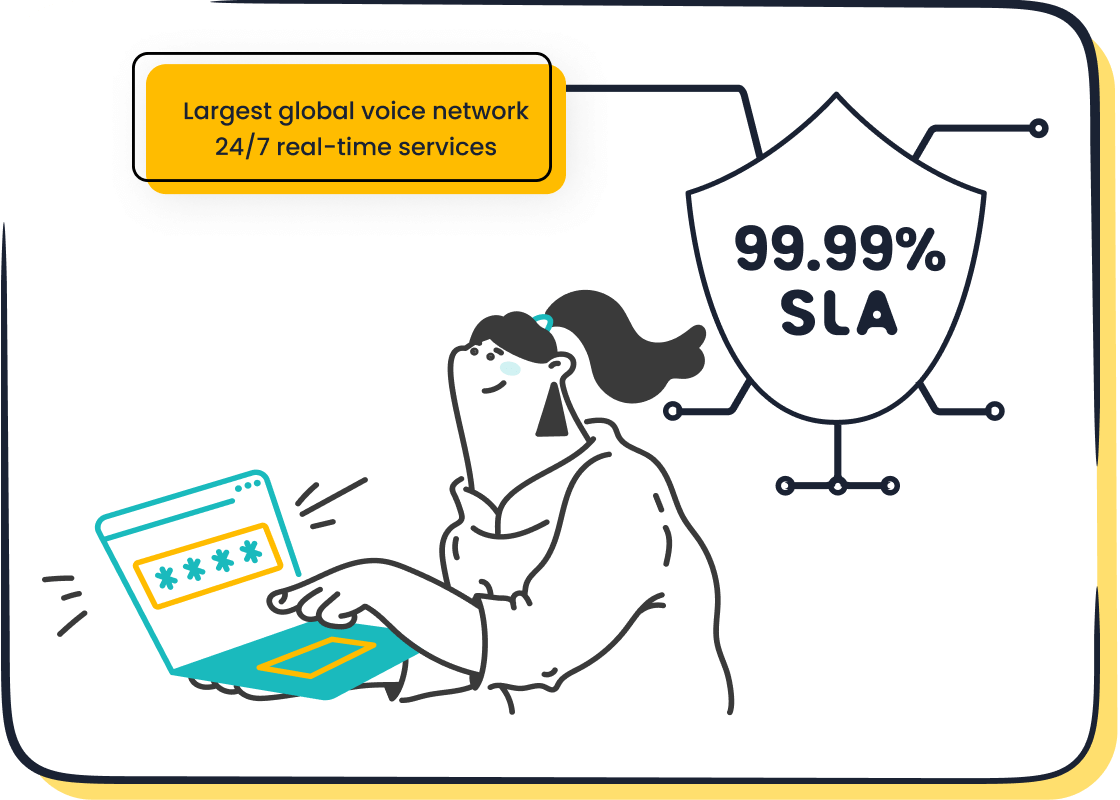
Sobot Voice/Call Center
Sobot Voice/Call Center stands out as one of the best call center software solutions for businesses of all sizes. Its intelligent features, such as AI-powered voicebots and flexible IVR systems, enhance agent productivity and customer satisfaction.
Key Benefits:
- Unified Workspace: Agents manage calls and customer data in one place, reducing system switching.
- Global Reach: With access to phone numbers worldwide, Sobot supports businesses with international operations.
- AI-Powered Tools: Voicebots handle routine inquiries, allowing agents to focus on complex tasks.
Sobot's impact is evident in its performance metrics:
| Metric | Value |
|---|---|
| Reduction in inbound discussion | 20% |
| Positive feedback rate | 96%+ |
| Customer satisfaction (CSAT) | 95% |
| Problem resolution rate | 85% |

Sobot Voice/Call Center also offers seamless integration with CRM systems, making it one of the best contact center software options available. Its customizable workflows and robust analytics ensure your team operates at peak efficiency.
Detailed Reviews of Top Tools
CloudTalk
Key Features
CloudTalk offers a range of features designed to enhance call center efficiency. Its customization options for call management allow you to tailor workflows to your needs. Essential tools like call recording and IVR streamline operations, while built-in analytics provide performance insights. The software integrates seamlessly with popular CRM platforms, ensuring agents have access to customer data in real-time. Omnichannel communication options and remote-ready capabilities make it a versatile choice for modern call centers.
Pros and Cons
-
Pros:
- Customizable workflows for better call management.
- Real-time analytics for performance tracking.
- Seamless CRM integrations.
- Omnichannel communication for flexibility.
- Remote-ready features for distributed teams.
-
Cons:
- Complex pricing structure may deter small businesses.
- Limited customer support on lower-tier plans.
- Reports of slow response times for account cancellations.
Pricing
CloudTalk’s pricing varies based on the features you need. While it offers scalable plans, the complexity of its pricing structure can be challenging for smaller businesses. For detailed pricing, you can explore their official website.
Best Use Cases
CloudTalk is ideal for businesses seeking robust call center software with advanced analytics and omnichannel support. It works well for remote teams and organizations that prioritize CRM integration and real-time analytics.
Zendesk
Key Features
Zendesk simplifies customer service with its robust contact center software. Its knowledge base empowers customers to find answers independently, reducing agent workload. AI-driven automation handles repetitive tasks, improving efficiency. The platform’s analytics provide deep insights into customer interactions, enabling data-driven decisions. Omnichannel support ensures seamless communication across platforms.
Pros and Cons
| Pros | Cons |
|---|---|
| Knowledge base enhances customer satisfaction with faster support. | Maintaining the knowledge base requires regular updates. |
| Analytics improve service quality through actionable insights. | Analytics setup may require a learning curve for new users. |
| Automation ensures consistent responses and saves time. | Excessive automation may feel impersonal to customers. |
Pricing
Zendesk offers tiered pricing based on the features you need. While its plans cater to businesses of all sizes, advanced features may require higher-tier subscriptions.
Best Use Cases
Zendesk is a great choice for businesses looking to enhance customer satisfaction through AI-driven automation and omnichannel support. It’s particularly effective for teams that rely on data insights to improve service quality.
Salesforce Service Cloud
Key Features
Salesforce Service Cloud excels with its AI-powered tools and real-time analytics. Its Customer Experience Intelligence analyzes feedback and identifies trends, helping you improve customer satisfaction. Dynamic surveys collect actionable insights, while sentiment analysis empowers agents to address issues proactively. The platform integrates seamlessly with CRM systems, ensuring a unified view of customer interactions.
Pros and Cons
-
Pros:
- Advanced AI tools for sentiment analysis.
- Real-time analytics for actionable insights.
- Seamless CRM integration for better data access.
-
Cons:
- Higher pricing may not suit small businesses.
- Advanced features require technical expertise.
Pricing
Salesforce Service Cloud’s pricing reflects its premium features. While it offers excellent value for large enterprises, smaller businesses may find it less accessible.
Best Use Cases
Salesforce Service Cloud is perfect for enterprises that need advanced AI tools and real-time analytics. It’s ideal for teams focused on improving customer satisfaction through data-driven strategies.
Intercom
Key Features
Intercom combines advanced tools to improve customer support and agent productivity. Its Help Desk feature centralizes customer queries, making it easier for agents to manage tasks. The AI Chatbot handles routine inquiries, freeing agents to focus on complex issues. Proactive Support notifies agents of potential problems, enabling faster resolutions. These features ensure seamless communication and enhance customer satisfaction.
Pros and Cons
-
Pros:
- Proactive Support reduces resolution times.
- AI Chatbot automates repetitive tasks.
- Over 450 integrations simplify workflows.
-
Cons:
- Advanced features may require technical expertise.
- Pricing can be high for small businesses.
Pricing
Intercom offers tiered pricing based on features. While its plans cater to businesses of all sizes, the cost may increase significantly for advanced tools. For detailed pricing, visit their official website.
Best Use Cases
Intercom is ideal for businesses seeking a versatile tool to streamline operations. It works well for teams that prioritize automation and proactive customer support. Companies with diverse communication needs benefit from its robust integrations.
Sobot Voice/Call Center
Key Features
Sobot Voice/Call Center offers intelligent features to enhance productivity. Its AI-powered voicebots handle routine inquiries, reducing agent workload. The flexible IVR system allows you to customize call flows, ensuring efficient routing. The unified workspace consolidates customer data, minimizing system switching. These features improve efficiency and customer satisfaction.
Pros and Cons
-
Pros:
- Unified workspace simplifies call management.
- Global telephony supports international operations.
- AI-powered tools enhance productivity.
-
Cons:
- Advanced customization may require initial setup time.
Pricing
Sobot Voice/Call Center provides scalable pricing, making it accessible to businesses of all sizes. Its economic SaaS rental model ensures cost-effectiveness. For more details, visit Sobot Voice/Call Center.
Best Use Cases
Sobot Voice/Call Center suits businesses of all sizes. It is perfect for companies looking to improve efficiency and customer satisfaction. Its global telephony and multilingual support make it ideal for international operations.
| Metric | Result |
|---|---|
| Reduction in inbound call volume | 20% |
| Positive feedback rate | 96% + |
| Correct answers rate | 80% |
| Customer satisfaction rate | 95% |
| Sign-off rate increase | 35% |
| COD collection rate increase | 40% |

Comparison Table of Top Tools

Metrics for Comparison
Features
When evaluating call center software, features play a critical role in determining its effectiveness. Tools like Sobot Voice/Call Center stand out with intelligent IVR, AI-powered voicebots, and a unified workspace. These features streamline workflows and improve agent productivity. For example, Sobot’s flexible IVR system allows you to customize call flows, ensuring efficient routing. Metrics like First Contact Resolution (FCR) highlight the importance of features that resolve issues on the first interaction, directly boosting customer satisfaction.
Pricing
Pricing varies significantly across call center software. Sobot Voice/Call Center offers a cost-effective SaaS rental model, making it accessible to businesses of all sizes. This flexibility ensures you can scale operations without incurring excessive costs. For instance, Sobot’s pricing model supports small businesses while accommodating the needs of large enterprises. Cost Per Call (CPC) is a key metric to consider, as it reflects the financial efficiency of your operations.
Ease of Use
Ease of use ensures agents can quickly adapt to new tools. Sobot’s unified workspace simplifies call management, reducing the learning curve. This feature minimizes system switching, saving time and improving accuracy. Average Handle Time (AHT) is a useful metric here, as it measures the time agents spend resolving customer issues. Tools with intuitive interfaces help reduce AHT, enhancing overall efficiency.
Integration Capabilities
Integration capabilities determine how well call center software fits into your existing systems. Sobot excels with seamless CRM integration and API support for custom workflows. This compatibility ensures agents have access to all necessary data in one place. Metrics like Average Speed of Answer (ASA) reflect the impact of integration on responsiveness and service quality.
Scalability
Scalability ensures your tools can grow with your business. Sobot’s global telephony and multilingual support make it ideal for expanding operations. Service Level is a key metric here, as it measures the percentage of calls answered within a set time. Scalable tools maintain high service levels even during peak periods, ensuring consistent customer satisfaction.
| Metric | Definition | Formula | Significance |
|---|---|---|---|
| Average Speed of Answer (ASA) | Measures the average time it takes for a call to be answered by an agent. | ASA = Total wait time of all answered calls / Total number of answered calls | Indicates call center responsiveness and service quality; helps in setting service level goals. |
| First Contact Resolution (FCR) | Tracks the percentage of interactions resolved without escalation. | N/A | Higher FCR rates improve customer satisfaction and reduce repeat calls. |
Tip: Prioritize tools with robust features and scalability to future-proof your call center operations.
Benefits of Agent Productivity Tools for Call Centers
Enhanced Agent Efficiency
Reduced manual tasks through automation.

Automation eliminates repetitive tasks, allowing your agents to focus on meaningful customer interactions. Tools like AI-powered voicebots handle routine inquiries, such as order tracking or appointment scheduling, without human intervention. This reduces inbound call volume and frees up your workforce for more complex issues. For example, Sobot’s Voice/Call Center uses intelligent IVR and automated workflows to streamline operations. These features not only save time but also improve agent productivity by reducing task overload.
Faster resolution times for customer queries.
Agent productivity tools optimize workflows, enabling faster resolutions. Unified workspaces consolidate customer data, so agents no longer need to switch between systems. This reduces average handle time and ensures quicker responses. Real-time analytics further enhance efficiency by identifying bottlenecks in your processes. For instance, omnichannel platforms allow agents to manage inbound and outbound communications seamlessly, ensuring customers receive timely support.
Improved Customer Satisfaction
Consistent and personalized customer interactions.
Customers value personalized service. Contact center software with omnichannel capabilities ensures consistent communication across platforms. Agents can access interaction histories, enabling them to provide tailored solutions. Sobot’s unified workspace exemplifies this by integrating customer data into one platform. This approach enhances the customer experience and builds trust, leading to higher satisfaction rates.
Higher first-call resolution rates.
First-call resolution (FCR) is a critical metric for customer satisfaction. Tools equipped with AI and automation improve FCR by guiding agents with real-time suggestions. For example, predictive analytics can recommend solutions based on past interactions. This reduces the need for follow-ups and ensures customers leave satisfied after the first interaction.
Better Performance Tracking
Real-time analytics and reporting.
Real-time analytics provide actionable insights into your operations. Time tracking software generates detailed reports on agent performance, helping you identify strengths and areas for improvement. This data-driven approach enables managers to offer targeted feedback, fostering continuous improvement. For example, Sobot’s Voice/Call Center includes real-time monitoring tools that track call volume and resolution rates, ensuring your team stays on target.
Insights for continuous improvement.
Performance tracking tools reveal trends that help you refine your strategies. Analytics dashboards highlight key metrics like average speed of answer and customer satisfaction scores. These insights allow you to adjust workflows and allocate resources effectively. By leveraging these tools, you can create a culture of continuous improvement, ensuring your contact center remains competitive.
Tip: Invest in tools that combine automation, real-time analytics, and omnichannel support to maximize agent productivity and customer satisfaction.
Choosing the right agent productivity tools can transform your call center operations. Tools like Sobot Voice/Call Center stand out with features such as AI-powered voicebots, flexible IVR systems, and global telephony support. These capabilities streamline workflows and improve customer satisfaction.
- For small businesses, cost-effective and scalable solutions like Sobot’s SaaS model ensure affordability without compromising quality.
- Large enterprises benefit from advanced automation and integration features, enabling seamless operations across multiple channels.
AI tools enhance productivity by automating workflows and improving decision-making. They allow agents to focus on complex tasks, boosting efficiency and customer support quality.
Investing in the right call center software ensures your team operates at peak performance, meeting customer expectations and driving long-term success.
FAQ
1. What are agent productivity tools, and why are they important?
Agent productivity tools help call center agents work more efficiently. These tools automate repetitive tasks, provide real-time insights, and streamline workflows. For example, Sobot’s Voice/Call Center uses AI-powered voicebots to handle routine inquiries, allowing agents to focus on complex issues. This improves both productivity and customer satisfaction.
2. How do agent productivity tools improve customer satisfaction?
These tools enable faster response times and personalized interactions. Features like Sobot’s unified workspace consolidate customer data, reducing system switching. This ensures agents resolve issues quickly and accurately. Studies show that 45% of customers prefer their problems solved in the first interaction, which these tools help achieve.
3. Can small businesses afford agent productivity tools?
Yes, many tools, including Sobot’s Voice/Call Center, offer scalable pricing models. This makes them accessible to businesses of all sizes. For instance, Sobot’s SaaS rental model ensures cost-effectiveness while providing advanced features like intelligent IVR and global telephony support.
4. What features should I look for in agent productivity tools?
Look for automation, analytics, and integration capabilities. Sobot’s Voice/Call Center includes AI-powered voicebots, real-time monitoring, and seamless CRM integration. These features reduce manual tasks and improve decision-making. Customizable workflows also allow you to tailor the tool to your business needs.
5. How do I measure the success of agent productivity tools?
Track metrics like First Contact Resolution (FCR), Average Handle Time (AHT), and Customer Satisfaction (CSAT). For example, Sobot’s Voice/Call Center has helped businesses achieve a 96% customer satisfaction rate and a 20% increase in agent efficiency. These metrics reflect the tool’s impact on your operations.
Tip: Regularly review these metrics to identify areas for improvement and maximize the benefits of your tools.
See Also
Best 10 Call Center Analytics Tools For 2024
Leading 10 Speech Analytics Solutions For Call Centers
Best 10 AI Solutions For Enterprise Contact Centers
